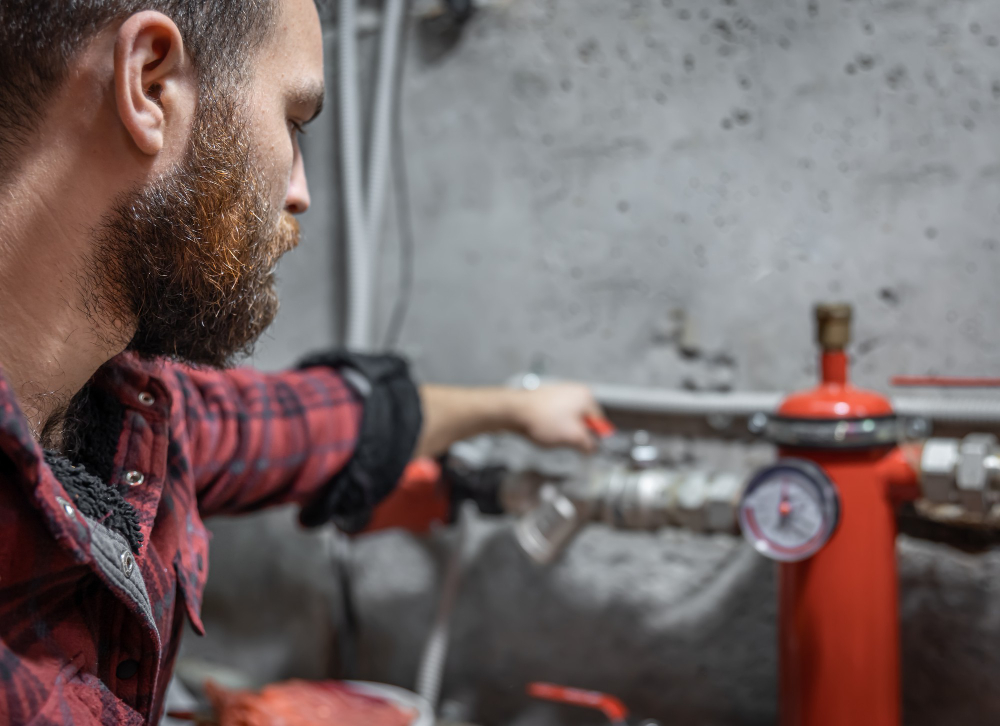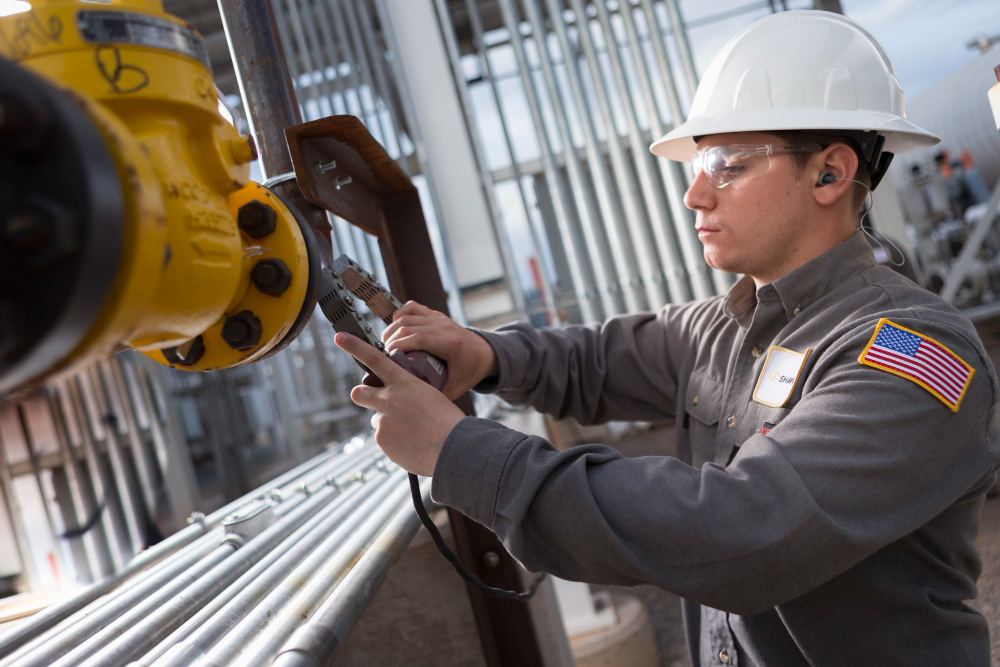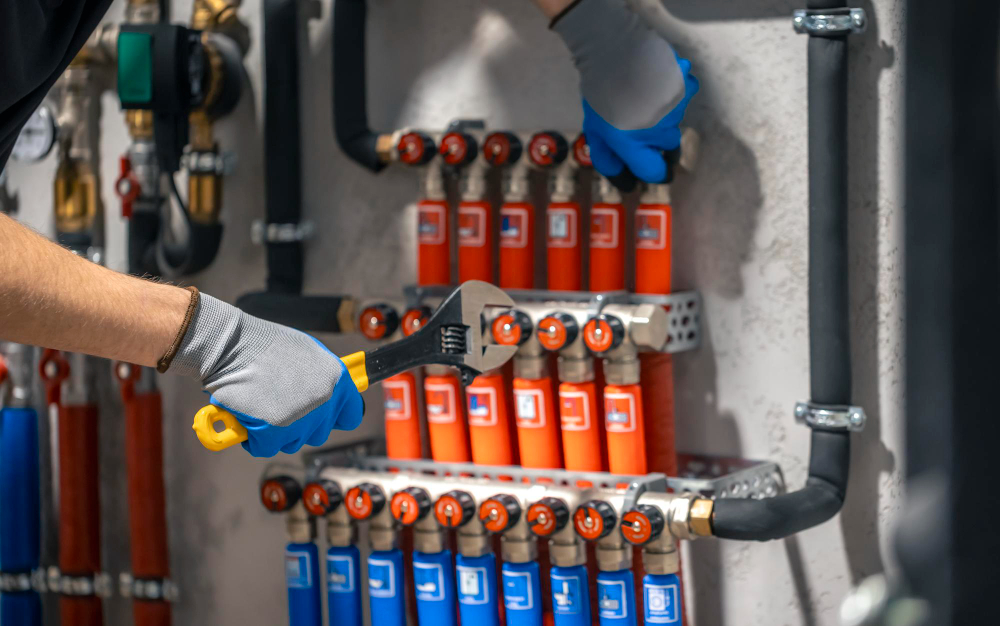
Why Professional Gas Line Installation is Crucial for Your Stove
Gas stoves are a preferred choice for many homeowners due to their efficiency and ability to offer precise temperature control. Whether you’re switching from an electric stove or installing a new gas stove, one critical step you’ll need to consider is gas line installation. Installing a gas line to power your stove is a technical job that demands skill, knowledge, and expertise.
The importance of a properly installed gas line cannot be overstated. Improper installation can lead to a host of potential problems, from minor performance issues to serious hazards like gas leaks or explosions. Hiring a professional ensures that everything is done safely and in accordance with all necessary codes and standards.
In this article, we will break down why gas stove installation is a vital process, and how choosing a qualified professional can prevent costly issues in the future. So, if you’ve ever wondered “who installs gas lines for stoves?”, or if you want to understand the importance of professional installation, keep reading.
Understanding Gas Line Installation: What You Need to Know
What Are Gas Lines for Stoves and How Do They Work?
At its core, a gas line for a stove is the pipeline that delivers natural gas or propane from your utility provider to your appliance. The gas flows through the line and into your stove, where it fuels the burners. This process makes cooking faster and more efficient compared to electric stoves.
Proper gas line installation is critical because any minor mistake in the setup can lead to issues such as poor stove performance, inconsistent heating, or, more seriously, gas leaks. The gas line must be of the right size and type, and it must be installed securely to ensure the stove functions at its best while keeping your home safe.
Additionally, gas line installation isn’t just about running a pipe from one point to another. The work involves:
- Correctly sealing joints to avoid leaks
- Using the appropriate pipe material (such as stainless steel or copper)
- Ensuring the proper gas pressure for your stove
- Ensuring there are no restrictions or obstructions in the line
Why Proper Gas Line Installation Is Essential for Safety
If you don’t hire a qualified professional to install your gas line, the risks can be significant. Here are some of the potential issues you might face with improper installation:
- Gas Leaks: Gas leaks are one of the most dangerous consequences of improper gas line installation. Gas leaks can go unnoticed until it’s too late, but they pose a serious fire hazard. Leaking gas can lead to an explosion or can poison those in the vicinity.
- Poor Performance: If your gas line isn’t installed correctly, it might not deliver gas to your stove efficiently. This could lead to poor burner performance, uneven cooking, and, in the worst case, the stove failing to work altogether.
- Health Hazards: Aside from explosions, long-term exposure to leaking gas can lead to health issues, including dizziness, headaches, nausea, and even long-term respiratory problems.
- Code Violations: Many local building codes require that gas line installations meet strict standards. Not following these rules could result in fines or make your home unsafe in the event of a problem.
Who Installs Gas Lines for Stoves? Why You Need a Professional
Qualified Professionals for Gas Line Installation
When considering, you might think about doing it yourself, or you might consider hiring someone with limited experience. But here’s the thing: gas line installation is not something that should be left to amateurs. It requires a specific set of skills and knowledge.
Who installs gas lines for stoves? The answer is simple: licensed and certified gas technicians or plumbers. These professionals are the ones who have the required training, knowledge, and experience to handle gas lines safely. Attempting to install or repair a gas line yourself is not only dangerous but could also violate local regulations.
The Importance of a Certified Professional
Licensed professionals are trained to:
- Follow local building codes and safety standards
- Properly size the gas line and install it for optimal stove performance
- Ensure that the gas line is correctly sealed and protected from potential damage
- Inspect the installation to ensure everything is working as it should
Attempting to install the gas line without the right knowledge can lead to disastrous results, including:
- Gas Leaks: Even the smallest mistake in the installation can cause gas to leak, leading to hazardous conditions in your home.
- Inefficiency: Incorrect installation leads to inefficient gas usage, meaning your stove won’t perform as well, and you’ll be wasting gas.
- Fire and Explosion Hazards: An improperly installed gas line could lead to fires or explosions if it comes into contact with heat sources or sparks.
By hiring a professional, you ensure everything is done correctly, and your home is safe from these potential dangers.
The Risks of Improper Gas Line Installation
Why DIY Gas Line Installation Is Dangerous
While it’s tempting to try a DIY approach to save money, gas stove installation is not a project you should tackle on your own. Gas line installation involves handling flammable substances under pressure, which makes it a risky job.
Here’s why:
- Unqualified Installers: DIY enthusiasts or unlicensed installers may not be aware of all the safety standards required for gas line work. They could make simple mistakes that lead to big problems.
- Gas Leaks: The most obvious and dangerous risk of improper installation is a gas leak. Gas is highly flammable, and even the smallest leak can result in a deadly explosion.
- Inefficient Gas Flow: An improperly installed gas line may not deliver enough gas to your stove, which could lead to inefficient cooking and increased energy consumption.
- Code Violations: Installing gas lines incorrectly may violate local codes, which can lead to hefty fines and potential safety hazards. If you ever need to sell your house, the buyer may require an inspection, and improper gas installation could make the sale process complicated.
Compliance with Safety Standards
Certified professionals follow all local regulations and safety codes when installing gas lines. They are aware of the latest standards, ensuring that the job is done correctly and that your gas stove works efficiently and safely.
Gas Line Repair: Keeping Your Stove and Home Safe
Common Gas Line Problems You Should Be Aware Of
Just because your gas line was installed correctly doesn’t mean it will remain in perfect condition forever. Over time, gas lines can develop issues that require repair. Some of the most common gas line issues include:
- Gas Leaks: This is the most serious problem that can occur with a gas line. If you notice the smell of gas near the stove or anywhere along the gas line, it’s essential to call a professional immediately.
- Corrosion: Over time, gas lines can corrode, especially if they’re made of certain materials like iron. This can create weak spots in the line, which increases the risk of leaks or breaks.
- Blockages: Gas lines can become clogged or blocked by debris, reducing the flow of gas to your stove. This can lead to decreased stove performance or a complete failure to work.
Signs You Need Gas Line Repair
Some signs that your gas line might need repair include:
- A noticeable gas smell around the stove or gas pipes
- Low flame or difficulty lighting your stove burners
- A sudden increase in your gas bill without a corresponding increase in usage
- Hissing or whistling noises coming from the gas line
How to Handle Gas Line Issues
If you notice any of the above symptoms, it’s important to call a licensed professional immediately. Plumbing Services Ontario provides reliable gas line repair services. Our team can quickly diagnose the problem, whether it’s a leak, blockage, or corrosion, and offer a solution to restore your stove’s performance safely.
Choosing the Right Gas Line Installer
Key Considerations for Gas Line Installation
Choosing the right professional for gas stove installation can be the difference between a safe, efficient stove and one that leads to problems. Here’s what to look for when hiring a professional:
- Licensing and Certification: Always ensure that the installer is fully licensed and certified. This ensures that they have the proper training and knowledge to handle the job safely.
- Experience: Opt for an installer with years of experience working specifically with gas lines. Experience can help avoid costly mistakes and ensure that the installation is done efficiently.
- Customer Reviews and Reputation: Do your research by reading reviews, asking for references, or checking the company’s reputation online.
- Emergency Services: In case of a gas leak or other urgent issues, it’s crucial to have a company that offers emergency gas line repair services.
The Benefits of Hiring a Licensed Professional
Hiring a licensed professional not only ensures safety but also guarantees that the installation meets building codes. Moreover, it saves you money in the long run by avoiding costly repairs and potential safety hazards.
Conclusion: Why Trust Plumbing Services Ontario for Your Gas Line Installation and Repair
Proper gas line installation is crucial for your stove’s performance and, most importantly, your home’s safety. Whether you’re installing a new stove or repairing an existing gas line, you need a licensed, experienced professional to ensure everything is done correctly.
At Plumbing Services Ontario, we specialize in gas stove installation and gas line repair. Our team of certified experts guarantees that your gas lines are installed safely and efficiently, keeping your home and family protected.
For all your gas line needs, contact Plumbing Services Ontario today for fast, reliable, and safe installation and repair services.




